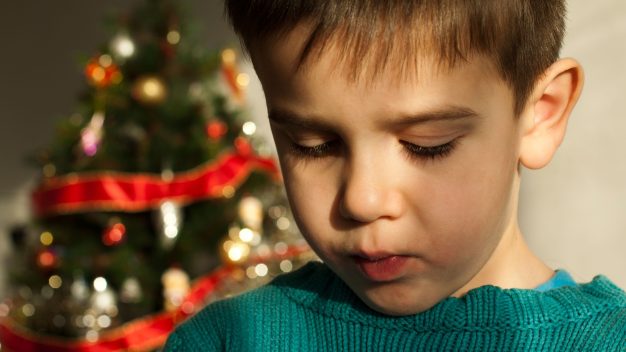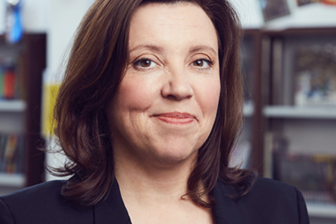
Christmas is anything but festive for children living in poverty – report
Christmas may almost be upon us, but there is no escaping the fact this is anything but a festive time for many children and their families.
And now a new report suggests that poverty is a very real life scenario for children in northern England due to their families being hit by a national ‘two-child’ welfare limit.
The End Child Poverty Coalition says the North West, North East, Yorkshire & Humber and the West Midlands regions have the highest percentage of children affected by a particular rule denying social payments.
Families entitled to benefits who have had a third or subsequent child after 6 April 2017 do not receive the £3,235 per year per child compared with families who have a third or subsequent child born before that date.
End Child Poverty goes on to say that their data highlights ‘a strong correlation’ between the two-child limit and areas with high rates of child poverty.
‘Denies families the support they need’
Research suggests that scrapping the two-child limit is one of the most cost-effective ways of addressing child poverty, and that would lift some 250,000 children out of poverty, at a cost of around £1.3 billion. The region with the highest percentage of children living in households affected by the limit is the West Midlands, at 14 per cent, while North West and Yorkshire & Humber are both 13 per cent.
In direct contrast, the region is affected the least is the South East, at eight per cent. And yet, that figure still amounts to 160,000 children whose life chances could be blighted by the policy. Across the UK’s four nations, the figure is 11 per cent for both England and Wales, 10 per cent for Northern Ireland and nine per cent for Scotland.
Children’s charity Barnardo’s is a member of the End Child Poverty coalition, and it recently published figures suggesting more than one in 20 children – six per cent – are sleeping on the floor because their families cannot afford for them to have a bed of their own. In its No Crib For a Bed report, the charity called for the two-child limit to be scrapped.
Joseph Howes, Chair of the End Child Poverty Coalition and CEO of children’s charity Buttle UK said: “Imagine saying to a child who turned up at school – sorry you can’t gain access, we won’t fund your education – only your two older siblings qualify. Or turning a child away from hospital when they need treatment, as they are the third child in a family. Yet this is exactly what the unfair two-child limit to benefit payments does, it denies families the support they need, at a time when they need it the most.
‘Tackle child poverty’
“As a parent I want to be able to provide for my children, especially at a magical time like Christmas. But we know from speaking with families impacted by the two-child limit that this time of year is anything but joyful. Instead, they worry about heating their homes, and providing even basic food over the Christmas period.
“If political parties seriously want to tackle child poverty, they need to start by scrapping the two-child limit to benefit payments.”
Lynn Perry MBE, Barnardo’s Chief Executive, said: “It’s simply not right that children growing up with two or more siblings are so much more likely to be living in poverty. The majority of families receiving Universal Credit are in work, and many are struggling for reasons beyond their control – such as a family break-up, the death of a partner, or someone losing a job amid the cost-of-living crisis.
“The unfair two-child limit on benefits is one of the biggest policy drivers of child poverty. If political parties are serious about levelling-up they need to urgently commit to ending the policy. This needs to be included in the manifestos of all political parties ahead of the forthcoming election to help tackle child poverty in the UK.”
‘Next generation of reforms’
The Government’s Department for Work and Pensions recently announced that a further £2 billion would be provided to low-income households from February, in the form of a £299 Cost of Living Payment. Around eight million households, it says, will receive the payment.
Mel Stride, Secretary of State for Work and Pensions, said: ”We’ve delivered on our promise to halve inflation, putting money back in people’s pockets, while also providing millions of households with unprecedented financial support to ease cost of living pressures.
“We will always protect the most vulnerable, while ensuring fairness for the taxpayer. We know that the best way to secure long-term financial security is through employment, so we’re rolling out the next generation of welfare reforms to put thousands more people on a pathway off benefits and into work.”
CASE STUDY
Rosie Gilchrist is a mum of three children – aged 13, 10 and six. She founded the charity Rosie’s Corner in Hexham, Northumberland, in North East England, which collects donations of new and preloved clothes and equipment to help families in need.
Rosie’s third child was born in May 2017 – the month after the two-child limit on benefits came in, meaning she is around £270 a month worse off.
She said: “Since the cost-of-living crisis hit I’ve been struggling to pay for gas, electricity and food. The money I do get goes in one hand and out the other just so I can make ends meet.
This Christmas is a massive worry. I’ll be taking out loans to pay for Christmas presents for the children
“The two-child limit doesn’t just penalise the third child – it penalises them all. When they have a growth spurt I can’t afford a full set of clothes for all three- I have to do it bit by bit and on a buy now pay later basis. So I have to put myself in debt.
“If the two-child limit was scrapped I’d be able to pay for things like extra-curricular activities for the children, so they could develop and have more positive, educational experiences. I currently can barely afford the tech and Wi-Fi that all children rely on for their education.”




